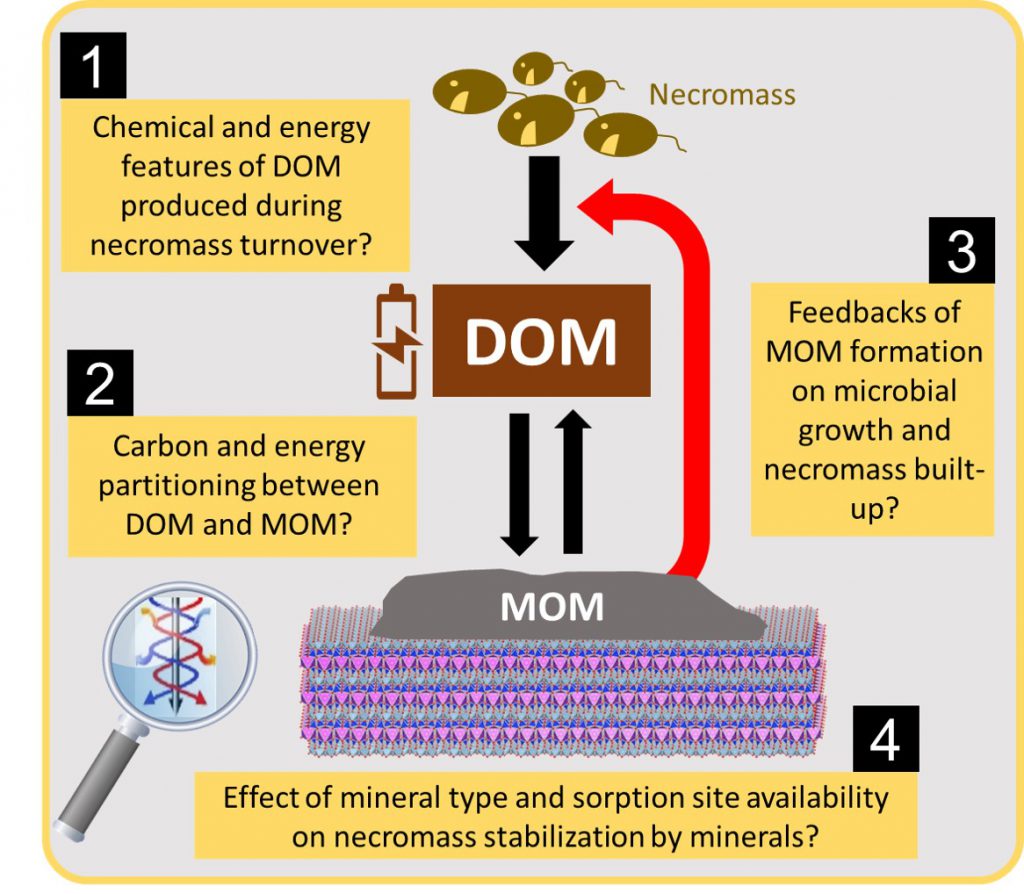Minerals and their INteractions with Dissolved organic matter as regulators of microbial NEcromass Stabilization in Soil

Microbial necromass is presumed to significantly contribute to stable soil organic matter. Yet, the so-called ‘entombing effect’, i.e. the built-up and subsequent stabilization of necromass-derived matter, is still not well understood on a mechanistic level. This project studies the production and reactivity (biodegradability and sorptivity) of dissolved organic matter along the decomposition continuum from plant litter to microbial necromass, and concurrently examines how sorptive stabilization of organic compounds shapes the structure of the microbial community, and its carbon and energy use. The project will thus describe interactions between necromass formation and dissolved organic matter sorption on basis of a quantitative assessment of matter and energy fluxes. Experimental work will include (i) incubation experiments on the production of dissolved organic matter from decomposing plant litter and microbial necromass (bacteria and fungi), (ii) sorption experiments using different pristine minerals, (iii) biodegradability tests for dissolved organic matter before/after sorption, (iv) tests of the stability of mineral-bound organic matter, and (v) incubations of carbon-labelled plant litter and microbial necromass in natural soil. This step-wise experimental approach enables to quantify and explain differences in the transfer efficiency of carbon and energy from variable organic sources to mineral surfaces. The determination of the molecular composition and energy content of dissolved and sorbed organic matter as well as the analysis of the microbial community using state-of-the-art methods, such as FT-ICR-MS and XPS among others, allow for gaining novel insight into the mechanisms of necromass stabilization in soil.
Link to English scientific abstract
Link to German scientific abstract